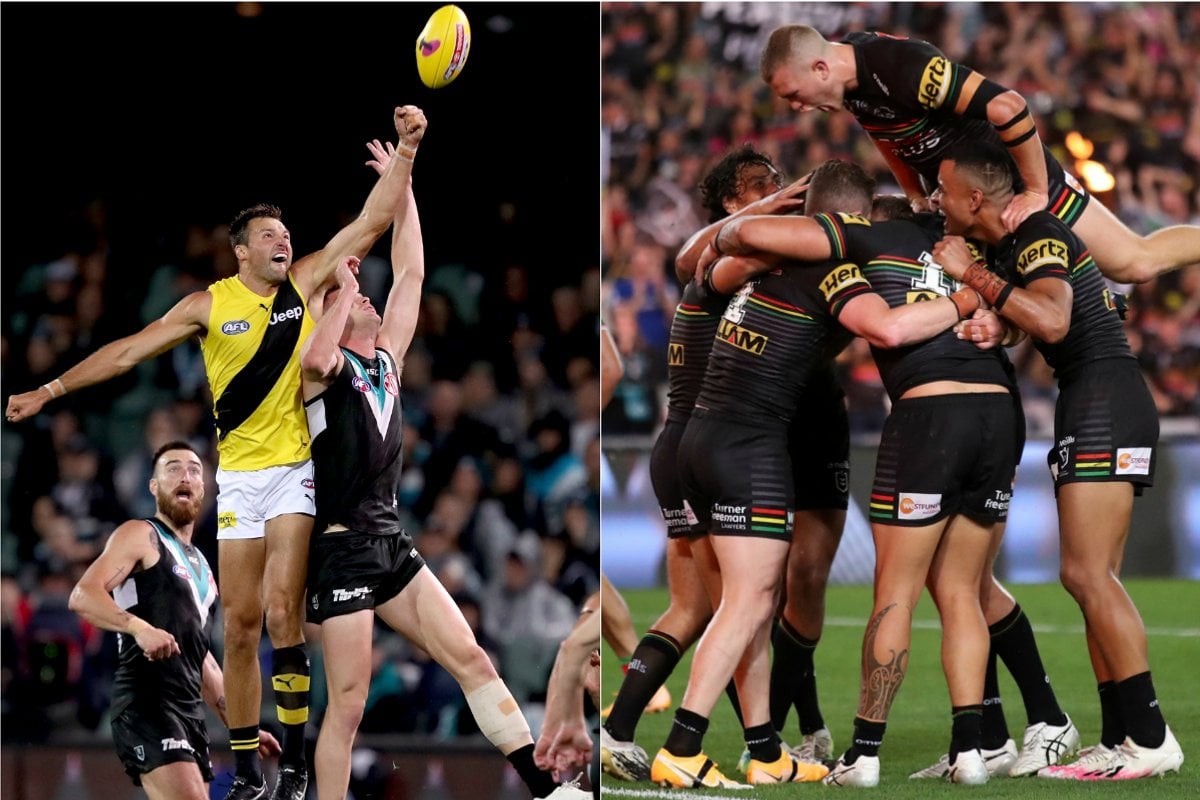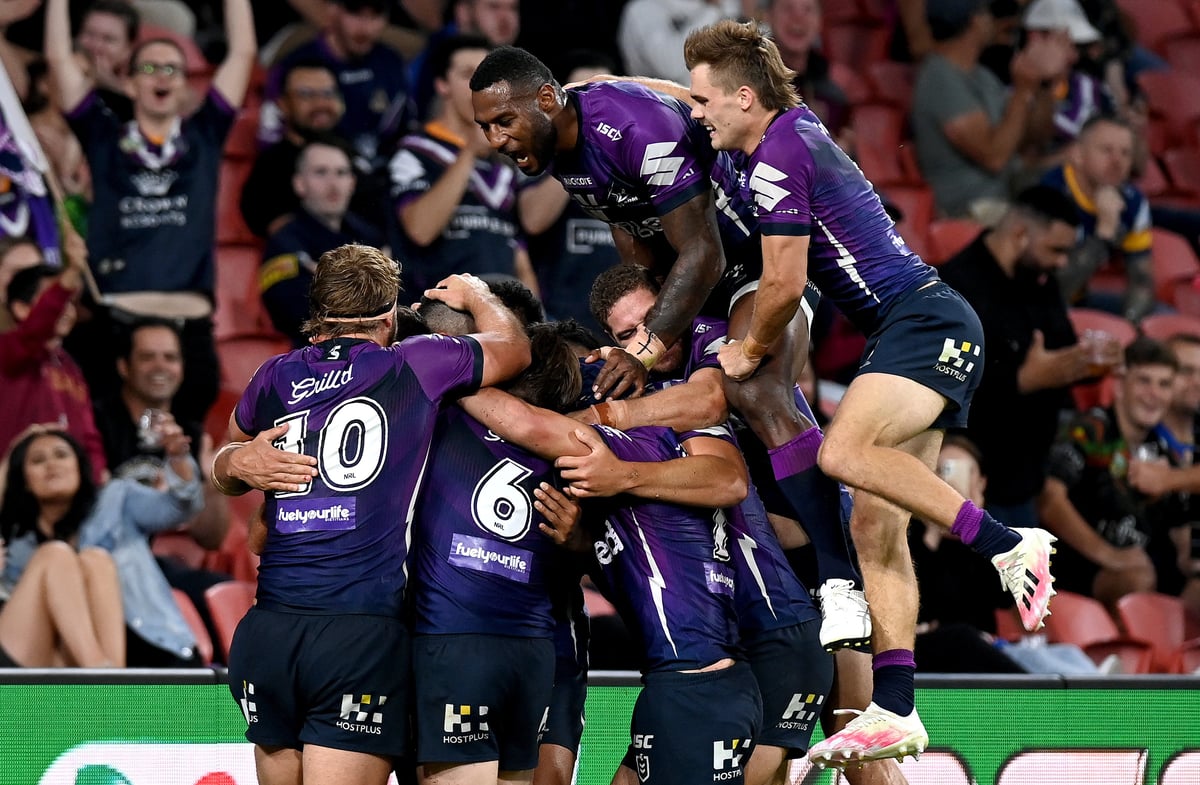
This post deals with domestic violence and might be triggering for some readers.
Pubs, police and paramedics are prepared. They know what this weekend will bring.
This weekend, domestic violence figures will probably surge and women and children - the most likely victims of family violence - will be at more risk of harm.
In case you didn't know, both the AFL and the NRL will hold their Grand Finals this weekend. They are typically a weekend apart, but the pandemic has shifted their schedules and they both now fall within just one day of each other.
At 6:30pm on Saturday, an umpire will bounce a ball in the centre circle of Brisbane's Gabba to signify the start of the long-awaited game between Richmond and Geelong. Whether in the crowd, in a pub or from their couch, millions of Australians will watch on, divided by what colour jersey they support.
Then, on Sunday, another Grand Final. This time, a referee will blow his whistle to kick off the NRL game between the Penrith Panthers and Melbourne Storm. Again, millions of Australians will find a television screen to watch the game, likely with a beer in one hand.
It will be a time of celebration for many, but for others, this weekend statistically brings with it danger.
Watch: The hidden numbers of women and violence. Post continues below video.


Top Comments